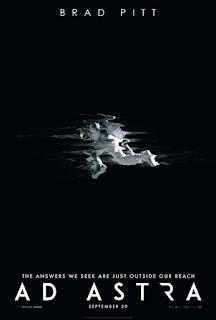Movie Name: Robin Hood: Prince of Thieves
Year of Release: 1991
Director: Kevin Reynolds
Starring: Kevin Costner, Morgan Freeman, Alan Rickman, Mary Elizabeth Mastrantonio, Christian Slater, Geraldine McEwan, Michael McShane, Brian Blessed, Michael Wincott, Walter Sparrow, Nick Brimble, Sean Connery
Genre: Drama
Score out of ten (whole numbers only): 4
Watch it on Amazon
Synopsis and Review:
Year of Release: 1991
Director: Kevin Reynolds
Starring: Kevin Costner, Morgan Freeman, Alan Rickman, Mary Elizabeth Mastrantonio, Christian Slater, Geraldine McEwan, Michael McShane, Brian Blessed, Michael Wincott, Walter Sparrow, Nick Brimble, Sean Connery
Genre: Drama
Score out of ten (whole numbers only): 4
Watch it on Amazon
Synopsis and Review:
Longtime Kevin Costner collaborator, director Kevin Reynolds followed his well received "The Beast of War", with this film which turned out to be one of the biggest hits of 1991. The film follows the traditional and iconic storyline, which had already been adapted on film in the iconic "Robin Hood" from Michael Curtiz and William Keighley (which made its debut in 1938). Robin Hood is fighting the crusades, but this time around upon his escape, he flees with a sidekick, in the shape of Azeem. Upon his return to England, Robin quickly discovers that the absence of King Richard, has allowed for Prince John to ascend to the throne, and for the Sheriff of Nottingham to rule the land with forceful cruelty (the sheriff has his cousin Guy of Gisbourne as his helpful assistant, as well as the witch Mortianna and the corrupt Bishop of Hereford). He also discovers his father has been attacked by the sheriff's men, who try to imprison him. After escaping, Robin and Azeem take shelter in the woods, where they become acquainted with a series of men who are rebelling against the sheriff's regime. They both end up leading the group, and start pillaging the sheriff's convoys, and distributing the proceeds to the populations. Robin also manages to meet Marian, the sister of one of his crusades comrades, and falls in love with her, not realizing that she's also the target of the Sheriff's attention.
"Robin Hood: Prince of Thieves" is a film that got made on the heels of Kevin Costner's massive success with "Dances with Wolves". The film in itself takes a series of liberties with the tale, introducing new sidekicks, half brothers, on top of witches, all with the sole intent of creating a story that is entertaining and ultimately escapist. The film half succeeds in those goals: it does feature robust action scenes/sequences, but the characters have little to no depth, and ultimately the chemistry between the main performers is non existent (particularly between Robin and Marian). The late Alan Rickman is the only one who is clearly relishing his role and having some fun with it. His Sheriff is more like a deranged rock star of the 80s and he truly brings some bite to the film, even if there's never a real sense of menace or danger throughout the whole endeavor. It's a breezy and lighthearted film, that is quickly forgettable.
"Robin Hood: Prince of Thieves" is a film that got made on the heels of Kevin Costner's massive success with "Dances with Wolves". The film in itself takes a series of liberties with the tale, introducing new sidekicks, half brothers, on top of witches, all with the sole intent of creating a story that is entertaining and ultimately escapist. The film half succeeds in those goals: it does feature robust action scenes/sequences, but the characters have little to no depth, and ultimately the chemistry between the main performers is non existent (particularly between Robin and Marian). The late Alan Rickman is the only one who is clearly relishing his role and having some fun with it. His Sheriff is more like a deranged rock star of the 80s and he truly brings some bite to the film, even if there's never a real sense of menace or danger throughout the whole endeavor. It's a breezy and lighthearted film, that is quickly forgettable.















